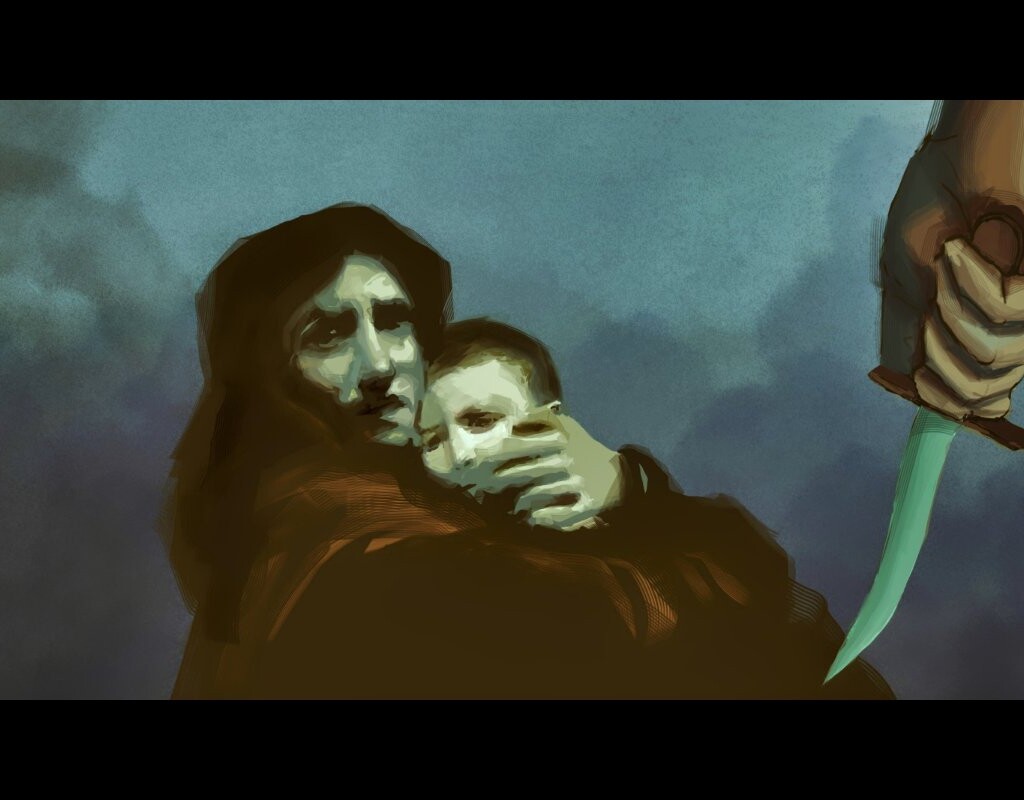Originating from the devastating massacre of children in Bethlehem under the reign of Herod the Great, the Day of the Innocents has evolved into a day of pranks and reflections. Beyond the “inocentadas” (pranks), this date invites society to commit to the defense of childhood, promoting safe environments and supporting initiatives that protect the most vulnerable from violence and inequality.
December 28: Commemoration and Children’s Rights on the Day of the Innocents
What is the Day of the Innocents?
On December 28, in much of the Spanish-speaking world, the Day of the Innocents is celebrated—a date that at first glance might seem lighthearted thanks to the popular pranks carried out in various countries. However, behind the playful spark lies a deeply painful origin: the massacre of children under the age of two ordered by Herod the Great in Bethlehem, an event historically situated around 6 B.C.
This tragic event, narrated in the Gospel according to Saint Matthew, serves as a reminder of the horrors that unchecked power can commit when paranoia and ambition overshadow humanity.
The Historical Context and the Figure of Herod
Herod the Great ruled Israel with an iron fist. He had risen to power thanks to Roman support and, for many of his contemporaries, his mix of monumental constructions and tyrannical decisions presented a leadership image as splendid as it was fearsome.
However, the arrival of some wise men—popularly known as the Magi of the East—triggered Herod’s alarm when it became public that a “future king of Israel” had been born. The concern turned into terror when these magi claimed that a star announced the birth of this new sovereign, according to ancient Jewish prophecies.
To quell any threat to his throne, Herod deployed a ruthless plan against a group of young children.
On one hand, different lines of investigation question how widespread the massacre was. Some historians reduce the number of victims to a few dozen, while other popular traditions speak of hundreds of infants killed. Regardless of the number, the cruelty of this act has become a universal symbol of the persecution of innocence and child vulnerability.
Why December 28 is Commemorated
The Catholic Church established December 28 as the Feast of the Holy Innocents, intending to honor those children who died due to Herod’s unfettered fear.
Gradually, the date spread to different Hispanic American regions and acquired the character of a day dedicated to pranks and jokes, seemingly in dissonance with its grave origin. Meanwhile, the cultural practice and current “inocentadas” make it sometimes difficult to distinguish the solemnity of the biblical event.
Between Solemnity and Pranks
Although this day may seem festive in many places, with fake notes, prank phone calls, and humorous rumors circulating on social networks, it is important not to lose sight of the deep essence of the commemoration.
In Latin America and Spain, the custom of playing small pranks, borrowing money without returning it, or moving objects to generate laughter has prevailed. However, for many religious institutions and child advocates, December 28 remains an occasion for serious reflection and commitment to the protection of the youngest.
A society’s ability to safeguard its children is reflected in how each community, family, or sector faces violence, neglect, and lack of access to quality education. Therefore, this date can be seen as an opportunity to question how power structures and inequalities continue to affect those who should receive the highest level of protection.
A Call to the Defense of Childhood
The history surrounding the Day of the Innocents transcends the religious perspective and stands as a moral symbol encompassing all cultures.
Today, child rights organizations remind us that millions of children are victims of various forms of violence and exploitation. Similarly, international organizations like UNICEF emphasize the need to ensure comprehensive protection of childhood, from preventing child labor and malnutrition to defending their rights to education and health.
Adults are ultimately responsible for putting an end to these situations. A commemoration is useless if no action is taken to offer children loving, stable, and safe environments. Problems of maltreatment and abuse persist when families lack the means to protect minors, or when societies allow economic inequality and political crises to leave the most vulnerable sectors without options.
The Catholic Church’s Call
Often, the Catholic Church reminds us of the children “killed before birth,” emphasizing the defense of life from conception. Ultimately, the tragic nature that originated this commemoration becomes a mirror to reflect on the moral responsibility to protect every human being in their most fragile stages.
Meanwhile, various dioceses and parishes around the world carry out awareness campaigns to foster compassion and generate assistance programs for unprotected childhood. Every initiative, no matter how small, can make a difference in a context where human solidarity is often the main barrier against injustice.
Conclusions
The Day of the Innocents is not merely a day of pranks.
Behind the scenes lies the testimony of how abuse of power can attack those without a voice. Therefore, every December 28 stands as a reminder of our shared responsibility to safeguard childhood and protect it from the multiple violations that persist in the world.
This date highlights the importance of the family as a fundamental pillar but also underscores the need for robust public policies and active social commitment.
If the tradition of “inocentadas” manages to lighten the weight of this history, let it be to lead us to a reflective smile.
Collective memory demands that we do not forget that, in the end, every child is a holder of the future. Cultivating respect and love for them builds stronger communities and a society that honors their ethical values.
However, the best way to honor those innocent children of the past is to protect the life and dignity of all present children. Only then will this day acquire a true meaning that transcends tragedy and turns it into an opportunity for change.
Mike Rivero – Ancient History – Day of the Innocents





